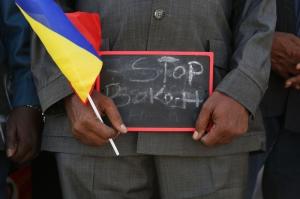U.N. Delivers Aid to Famine-Hit Somalia for First Time in 5 Years
Somalia, UNHCR, Aid, Famine, Mogadishu
For the first time in five years emergency aid has arrived by airlift to Mogadishu, the capital of famine-stricken Somalia.
According to Andy Needham from the Office of the U.N. High Commissioner for Refugees, the flight containing 31 metric tons of emergency supplies, arrived in Mogadishu Monday afternoon.
The delivered aid included almost 2,500 emergency assistance packages containing improvised tent sheets, sleeping mats, blankets, water containers and food utensils, while a later flight will deliver high-energy biscuits, reported UNHCR.
The delivery of aid comes just days after Islamic insurgents fled Mogadishu after a heated battle with government and African Union forces.
Mogadishu lies just 400m from the front line in the conflict between pro-government forces and the Islamist, al-Qaeda-linked insurgents, al-Shabab.
The environment in Mogadishu remains fragile as pro-government militiamen attacked a refugee camp just last week, stealing all the food.
Despite the security risks posed by insurgent and government fighting, Needham said, "We took the unprecedented decision to take the airlift for speed due to the famine."
The UNHCR chose to airlift the aid in a time-saving effort to reach the large number of starving people currently flocking to Mogadishu.
As a result of devastating famine and drought in the region, nearly 100,000 Somalis have arrived in Mogadishu in search of food and water, reports the U.N., the majority of them women and children. This is in addition to the more than 370,000 internal refugees already driven to the capital due to violent conflict within Somalia.
Many flee to the capital, one of five UN-declared famine zones in Somalia, because there most of the 600,000 inhabitants at least receive international aid. According to Mark Bowden, the U.N.’s top humanitarian official for Somalia, outside the capital aid is only reaching about 20 percent of the 2.6 million Somalis who need it.
Beyond the capital, famine threatens to engulf all of Somalia’s south, the U.N. Food and Agriculture Organization (FAO) warns, and immediate action is needed to save the lives and livelihoods of millions.
According to the FAO, “The crisis in the Horn of Africa is the most severe food security emergency in the world today,” a situation “exacerbated by protracted conflicts that over time have forced millions of people to flee their homes.”
While getting aid to Mogadishu was an easier task, accessing the large region of al-Shabab held territory in Southern Somalia where the drought has hit hardest will not be so simple.
Additionally, with al-Shabab’s reversal of the decision to lift the ban on some international agencies, political fighting could once again obstruct the international community’s efforts to feed the starving.
Tony Burns of the Somalia-based aid agency Saacid responded: "Al-Shabab is an issue in responding to the famine, but for us it's more about finding the resources so that we can help people."
On that same note, following the delivery of aid to Mogadishu, the UNHCR calls upon more private and government donations for emergency operations so as not to jeopardize future aid to famine victims.



























